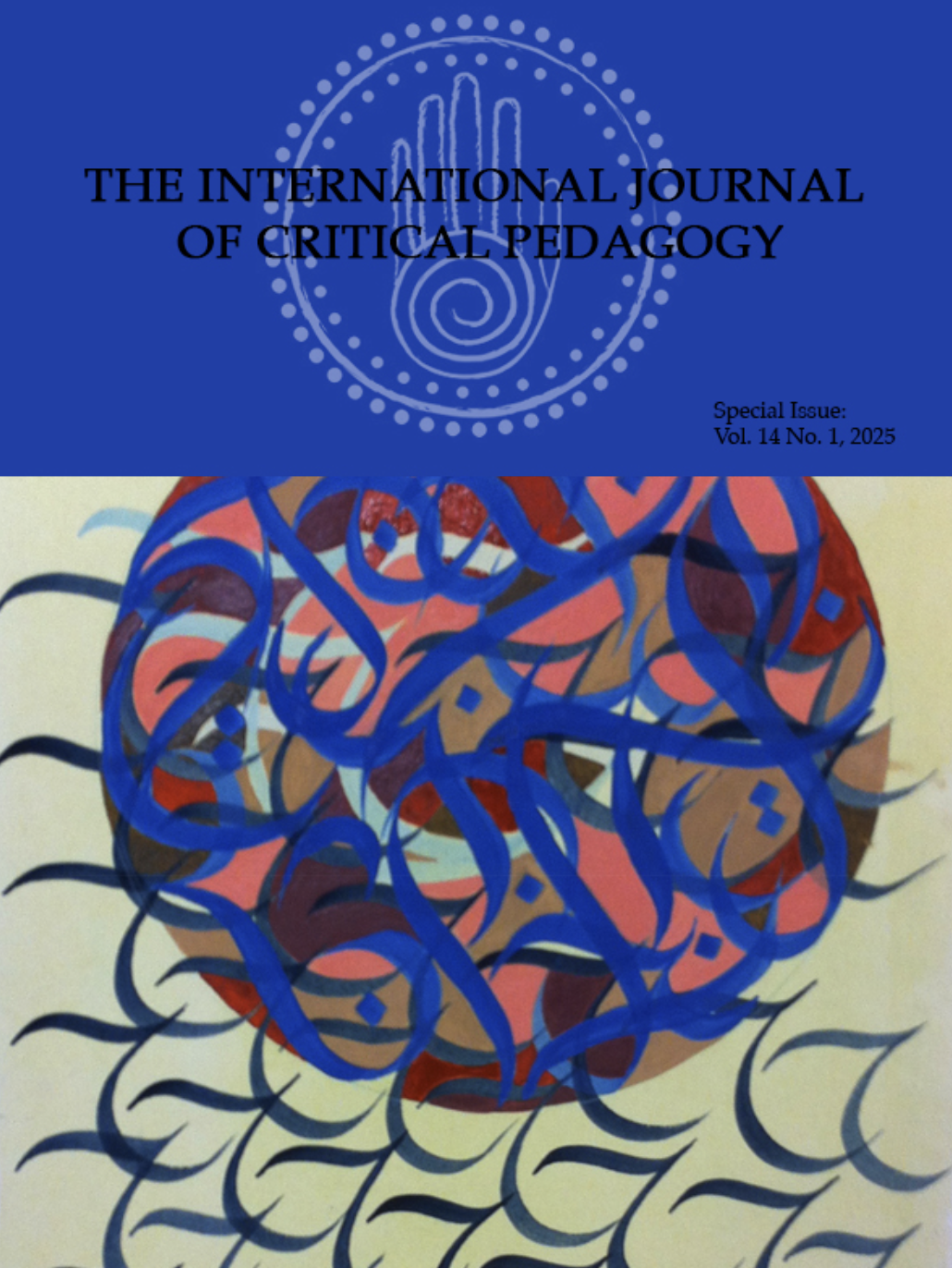Abstract
This article explicates the intersection of place-based and border pedagogies, including how transnational, comparative studies and issues-centered pedagogies are central to the contemplation of one’s own situatedness. Critical place-based (Gruenewald, 2003) and border pedagogies (Giroux, 2005), provide a platform for effectively crossing borders inherent to larger research, intellectual knowledge, appreciation, and learning (Cashman & McDermott, 2013). Dialogic understandings follow on the concepts of heteroglossia, meliorism, critical cosmopolitanism, nepantla, dialogic feminism, and pragmatic hope that are embedded in place-based and border discourses. Dialogic understandings (Cashman, 2015, in press) resituate teachers, students, cultural workers, decision makers, policymakers, and the larger community. In this manner, members of the educational community have their assumptions, practices, and judgments challenged. Through border pedagogy it is possible to recognize and contemplate how margins were created by history, power, and differences. Resituated dialogic understandings position us, as educators, students, cultural workers, and members of the larger community, to be prepared to engage in multidirectional discourses from a) student to teacher, b) teacher to student, c) student to student, d) teacher to teacher, e) teacher to administrator, f) administrator to teacher, g) educator to policy maker, and h) cultural worker to policy maker.
Keywords: place-based pedagogies: border pedagogy, comparative education, transnational education, critical border dialogism
How to Cite:
Cashman, T. G., (2016) “Navigating the Intersection of Place-based Pedagogy and Border Pedagogy: Resituating our Positions through Dialogic Understandings”, International Journal of Critical Pedagogy 7(1).
Downloads:
Download PDF
View PDF

